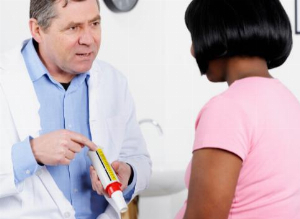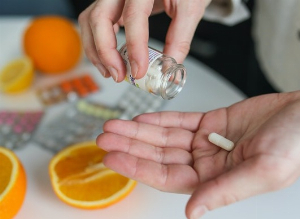What is Therapeutic Patient Education (TPE)?
Published 31 Jul 2023 • By Polina Kochetkova
To enable people to actively manage their medical illnesses and enhance their general well-being, therapeutic patient education (TPE) is essential. TPE goes above and beyond standard medical care by giving patients the tools, resources, and support they require to effectively handle their conditions.
What is therapeutic patient education? How does it work? What advantages does therapeutic patient education provide for the patients, doctors, and the rest of the medical community?
Keep reading to discover!

What is therapeutic patient education (TPE)?
The WHO describes therapeutic patient education as “helping the patient and his family to acquire knowledge and competencies about the disease and its treatment, in order to better collaborate with the caregivers, and to improve their quality of life.” This approach suggests that doctors and other healthcare professionals must learn how to communicate information in a way that the patient can understand and incorporate. A method called therapeutic patient education was created to allow medical practitioners to impart their knowledge and experience to patients so that they might take an active role in their own treatment.
The WHO document from 1998 presents therapeutic patient education as a series of structured activities involving a collaborative effort between healthcare professionals, patients, and their families or caregivers, aiming to foster effective self-management. The core objective of TPE is to empower patients to take charge of their health by providing them the tools they need to understand their conditions, make informed decisions, and adopt healthier lifestyles.
What are the key components of therapeutic patient education (TPE)?
Sharing of Information
TPE includes the communication of reliable, relevant, and understandable information on the patient's condition, available treatments, and self-care routines. It makes sure that patients are aware of their health condition and the steps they must take to properly manage it.
Skills Improvement
TPE aids patients in acquiring the knowledge and skills required to autonomously manage their diseases. Therapeutic patient education is aimed to help with both the self-care abilities and life skills of the patients. Therapeutic patient education focuses on the following skills:
Self-care abilities
- Symptom relief.
- Considering the outcomes of self-monitoring and self-measurement.
- Modifying medication dosages and starting self-care.
- Carrying out medical and technological operations.
- Adopting new lifestyle habits (such as diet and exercise).
- Preventable concerns from occurring.
- Tackling issues associated with illness.
- Including close friends and family in the treatment and care of the sickness as well as any consequences.
Life skills
- Self-awareness and confidence.
- Managing emotions and stress.
- Fostering critical thinking and flexible reasoning.
- Enhancing interpersonal and communication abilities.
- Making decisions and addressing problems.
- Setting objectives and taking actions.
- Examinating and strengthening one's own abilities.
Monitoring of the treatment
The need for treatment adherence is emphasized by TPE. Patients are more likely to stick to their recommended medicines if their doctors fully explain the reasoning for treatment regimens, any potential adverse effects, and the advantages of adherence. Better illness management and better health outcomes are the results of the TPE approach.
Cooperative decision making
TPE encourages people and healthcare providers to make decisions together. When creating treatment plans, it entails taking the patient's preferences, values, and objectives into account. TPE increases patient autonomy and satisfaction by incorporating patients in decision-making.
What are the benefits of therapeutic patient education (TPE)?
The many advantages of therapeutic patient education have a considerable positive effect on patients’ overall health and quality of life. TPE gives patients the tools they need to become active participants in their healthcare by offering individualized and organized education. It gives individuals the information, abilities, and confidence they need to properly manage their medical issues.
Through TPE, patients can manage their own treatment regimens, take their prescriptions as directed, and make healthier lifestyle decisions. Along with greater symptom control and fewer hospital readmissions, this increased self-management also strengthens the patient-provider connection by fostering better communication and teamwork.
Additionally, TPE is essential for minimizing difficulties since it teaches patients how to spot early warning symptoms, which enables prompt management and lessens the long-term effects of chronic illnesses. TPE improves patients' psychological well-being and contributes to overall higher quality of life by lowering stress and anxiety related to managing medical illnesses.
Finally, therapeutic patient education encourages effective use of healthcare resources by explaining to patients how to use them correctly. Consequently, healthcare recommendations are improved, fewer unneeded consultations or tests are performed, and eventually, the healthcare system becomes more cost-effective.
How to be a part of therapeutic patient education (TPE)?
You may go through several educational platforms and resources to learn more about therapeutic patient education. Here are some places you might go discover more about this subject:
Healthcare Organizations and Hospitals: Many healthcare organizations and hospitals provide patient education tools, courses, and activities. See if there are any patient education resources accessible at any nearby hospitals or medical facilities.
Online Courses and Webinars: There are several online platforms that provide courses and webinars on a range of healthcare-related subjects, including therapeutic patient education. There may be pertinent courses offered by educators and healthcare experts on websites like Coursera, edX, and Udemy.
Professional groups: You can look for groups dedicated to your particular field of study or state of health. These businesses frequently offer educational resources, seminars, and more.
Overall
By encouraging patient empowerment, self-management, and better health outcomes, therapeutic patient education is an effective tool for changing the healthcare environment. TPE improves communication, encourages shared decision-making, and ultimately results in greater overall health and well-being by providing patients with the information, abilities, and support they need to actively engage in their treatment.
TPE is important, and individuals, healthcare professionals, and legislators should all be working to make it a part of all healthcare systems across the world. This educational method can enable people to take charge of their health through a patient-centered approach and promote a better, healthier future for everybody.
Give it a "Like" and share your thoughts and questions with the community in the comments below!
Take care!
Sources:
Therapeutic patient education (TPE), HAS-sante.fr
Patient therapeutic education, NIH.org
Effectiveness of therapeutic patient education interventions for chronic diseases: A systematic review and meta-analyses of randomized controlled trials, Frontiersin.org
Therapeutic Patient Education, Baclesse.fr
Therapeutic patient education: continuing education programmes for health care providers in the field of prevention of chronic diseases: report of a WHO working group, WHO.org

 Facebook
Facebook Twitter
Twitter



